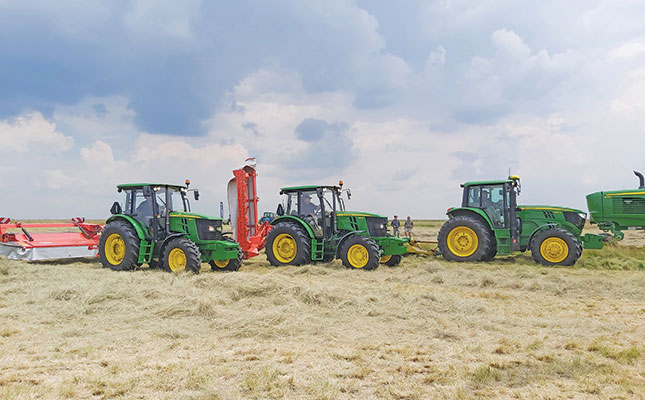
Photo: Lindi Botha
This was according to Agbiz, which recently reported that tractor sales in South Africa grew 17% year-on-year in 2022 to reach 9 184 units, the highest annual sales figure for the past 40 years.
It added that combine harvester sales during the same period amounted to 373 units, up 38% from 2021. This was the highest yearly sales figure since 1985.
Dawie Maree, head of agriculture information and marketing at FNB, told Farmer’s Weekly that the lower interest rates over the past two years had given farmers a reprieve from their debt, and this had enabled them to buy new machinery.
“Since the 2022 Nampo [Harvest Day], machinery sales have held up, and we should see this trend continuing until June this year, after which it should decline,” Maree said.
While the current grain harvest looks to be one of the best on record, challenges across the agriculture sector will have an impact on cash flow this year, according to Wandile Sihlobo, chief economist at Agbiz.
He said that slight declines in the harvests of staple crops such as maize, production challenges in the sugar industry, trade friction in the fresh produce, beef and wool sectors, and widespread outbreaks of foot-and mouth disease would weigh on the industry’s performance this year.
“The strong growth in agricultural machinery sales over the past two years created an exceptionally high base, setting the ground for some pullback,” Sihlobo explained.
Norman Celliers, CEO of AFGRI, cautioned farmers against overburdening their businesses with debt.
“I’ve always believed that debt is dangerous, and that one must be pragmatic about how much debt one’s business has. Debt should be on the conservative side, because agricultural markets can be volatile, and there’s a lot that [farmers can’t] control.
“Debt isn’t necessarily a problem over the long term, but it can catch you in a bad year. Over the next 12 to 24 months, farmers should be especially cautious, as interest rates and inflation are rising.
“We’re also likely to see a dangerous combination of high input costs, debt, and a reduction in commodity prices,” Celliers said.











